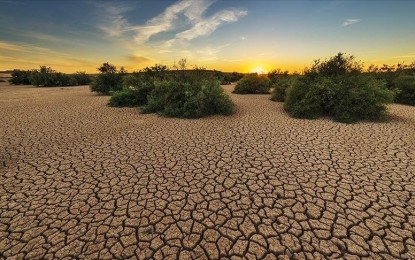
(Photo courtesy of Anadolu)
MANILA – An expert is recommending the establishment of community gene banks in remote farming areas nationwide.
Aside from helping preserve crop diversity for future farming, University of the Philippines-Los Banos professor Teresita Borromeo said the banks will enable farmers in those areas to more easily store and access genetic materials of crops they grow.
"It's best if they have gene banks where they have control over access to traditional varieties and farmer-bred varieties," she said in a recent online Farmers and Fisherfolks Congress.
Borromeo, the specialist in plant genetic resources conservation and management, said easy access to genetic materials of crops is important particularly during calamities so farmers can resume planting and growing these as soon as possible.
Being able to do so will help them bounce back from calamities and adapt to climate change, she added.
The Philippine agriculture and fisheries sector must adapt accordingly as climate consultant and weather specialist Lourdes Tibig noted Earth is warming so the climate is changing.
She said Earth's temperature rose by less than 1°C over the years but this warming's impacts on such sector are already intense.
Among the impacts she cited is an onslaught of increasingly strong tropical cyclones that adversely affected crop production in the country.
Warming of seas is reducing fisheries production, she continued.
"From now till 2100, temperature can rise by 4°C - how will agriculture and fisheries survive that?" she pointed out during the congress.
She said the world can no longer prevent climate change but may still try to decrease the rate of increase in Earth's temperature.
"If we can't reduce that rate to avoid 4°C, we won't run out of problems in production, fisheries and human health," she said.
Continuous accumulation of greenhouse gas emissions in the atmosphere is increasingly trapping heat so Earth is warming, causing the climate to change.
Borromeo said climate change, pollution, invasive species and disease, over-exploitation of species as well as changes in land and sea use are threatening biodiversity including organisms in agriculture and fisheries.
There are already fewer sightings of several species including water chestnuts which used to be common in paddies, she noted.
"Some species are disappearing so there's no chance to know them," she added. (PNA)
